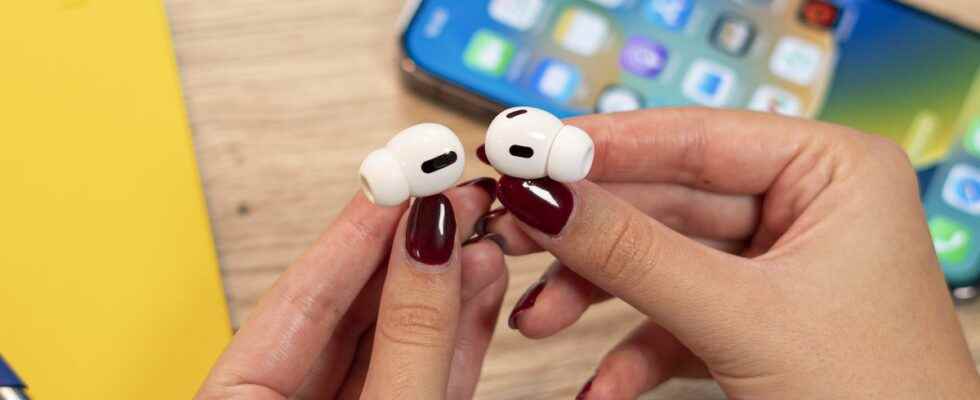Apple has just released a slew of updates for all of its devices. iOS, iPad OS and macOS have all had new versions of their operating systems to bring new software and fix some bugs. Among them was a particularly annoying flaw that allowed, in some cases, to spy on conversations with Siri and the content of voice dictation.
Dangers of Bluetooth
Spotted by the developer Guilherme Rambo (who publishes the AirBuddy application intended to facilitate the connection of wireless headphones on Mac), the flaw allowed “any app with Bluetooth access to record your conversations with Siri and iOS voice dictation audio when using AirPods or Beats headphones. This happens without the app asking for permission to access the microphone and without it leaving any traces“, explains the developer.
To put it simply, with a headset connected via Bluetooth and by analyzing the data streams that come out of the iPhone during a Siri request or a voice dictation, it was possible to reconstruct the audio file and therefore listen to the content of voice messages. A rather annoying flaw that could be exploited discreetly. As Guilherme Rambo explains, by simply connecting Bluetooth headphones and analyzing the activity of the DoAP service (which is used for voice dictation and Siri) with a dedicated application, it became possible to record audio on the nose. and beard of a user.
A flaw corrected by Apple
Granted, the app needed Bluetooth permissions to record audio content, but there was no indication that the app could also listen to mic audio in the background. “Most users don’t expect that giving an app access to Bluetooth will also give it access to their conversations with Siri and voice dictation audio.“, regrets the developer. Worse still, under macOS, no permission was requested to save the content sent to the AirPods.
Fortunately, the bug was fixed by Apple in version 16.1 of iOS and the latest version of macOS by limiting access to the DoAP service. The flaw discovered by Guilherme Rambo having been immediately shared with Apple, no malicious use seems to have been made of it.
